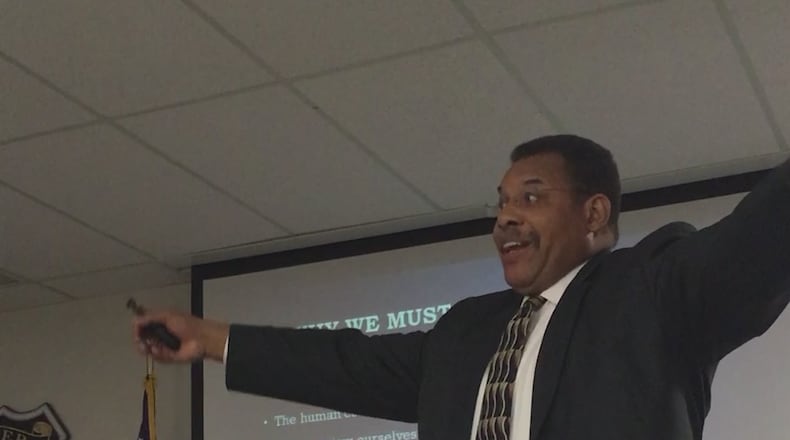During his years as an intellectual property lawyer, Paul Knowlton began thinking about how his profession could practice in a more holistic, rather than adversarial, way. “I didn’t want to be the damage control guy. I wanted to give good advice about how to avoid issues,” he said.
While still running a law firm, Knowlton went back to Mercer University to earn a joint degree in theology and clinical counseling. His 2014 graduation was followed with stint in Washington, and the idea of how to bring spirituality into professional life kept nagging at him.
“A Gallup poll in 2018 showed that 51 percent of us are disengaged in our work,” he said. “I wanted to come up with a model to break that.”
The answer may lie in educating workforce leaders about how to add spirituality into their companies and agencies. And Knowlton is quick to point out that his definition of “spirituality” isn’t a religious one. It’s based on the belief that every person possesses inner strength and trust that gives meaning to work. While those elements may be absent in many workplaces, Knowlton’s current job is to get more people thinking about them.
As the founding director of Mercer’s new Institute for Spirituality in the Professions, Knowlton is designing courses and workshops that “give people more tools to navigate daily stresses. The skill sets we can develop and built on come out of theology and mental health counseling and can be put it in practical terms.”
ISP programs include workshops on leadership training, meditation and wellness designed to reduce stress and create a more even keel in lives of professional people. Because of his background, many of those programs have been aimed at professionals who come from the arena of Knowlton’s past experience – in law and policing. Certificate courses are available, and for the first time this spring, a graduate level course around spirituality for health care providers is on the schedule.
“I accepted this role in a university setting with access to research and intelligent people because I believe that in a neutral place, we can speak to industry and culture, and we can be better than we are,” Knowlton said. “We try to focus on the needs of a profession, like health care. We’ve had continuing education workshops around self-care for new attorneys. And we’re just starting to do outreach for individual courses.”
Knowlton has cohosted workshops with Sam Feemster, a Virginia-based consultant who went to seminary while serving as a special agent for the Department of Justice and teaching at the FBI Academy. He views the Mercer program as one that’s sorely needed.
“I’m working on a course that will start a conversation about spirituality and policing because I think it’s extremely important,” he said. “In the last decade, we’ve made a lot of strides covering this ground with law enforcement, but there needs to be more. I like that at ISP I can say, ‘You see the face of God in every person,’ and I can talk about spiritual wellbeing without worrying about crossing those church/state issues.”
Knowlton also sees ISP moving beyond the campus and into the workplace to meet professionals at lunch-and-learn sessions and on-site workshops.
“I envision people getting some of this training, then taking it back to the HR departments, too,” he said. “I’m trying to find the Yodas of the world who can give us guidance because there needs to be a more gentle way of dealing with each other. We’re mistreating each other in ways that just should not happen. It’s not acceptable.”
Information about the Institute for Spirituality in the Professions: theology.mercer.edu/isp.
About the Author
The Latest
Featured

